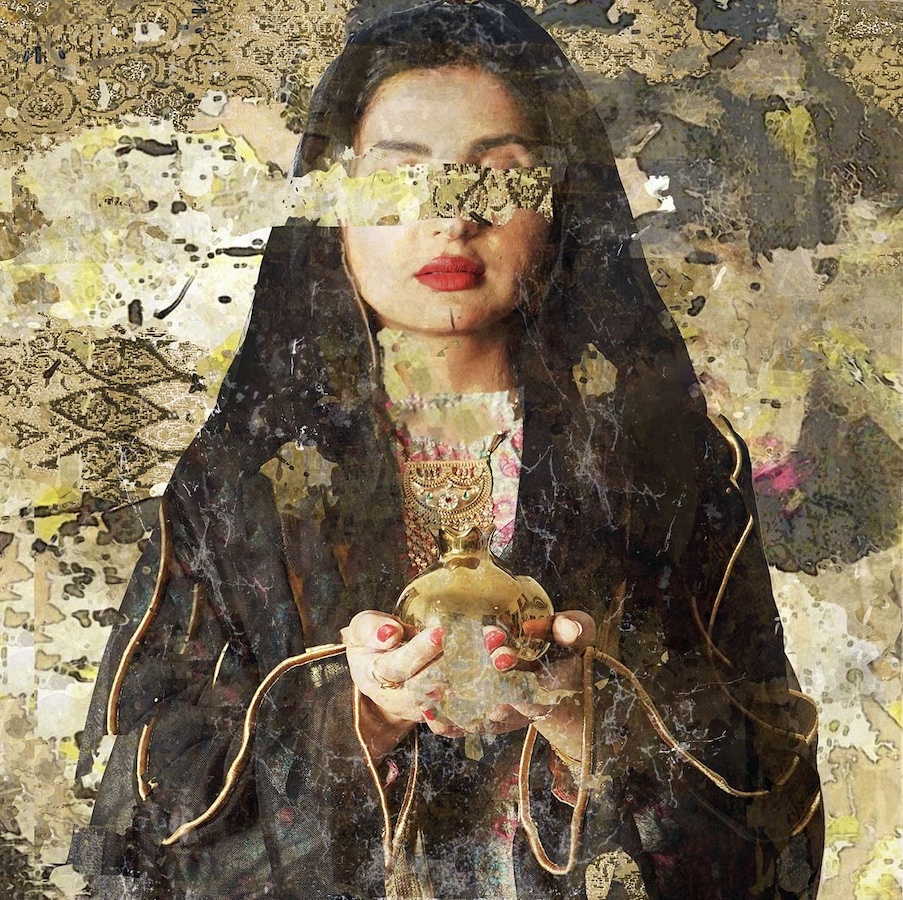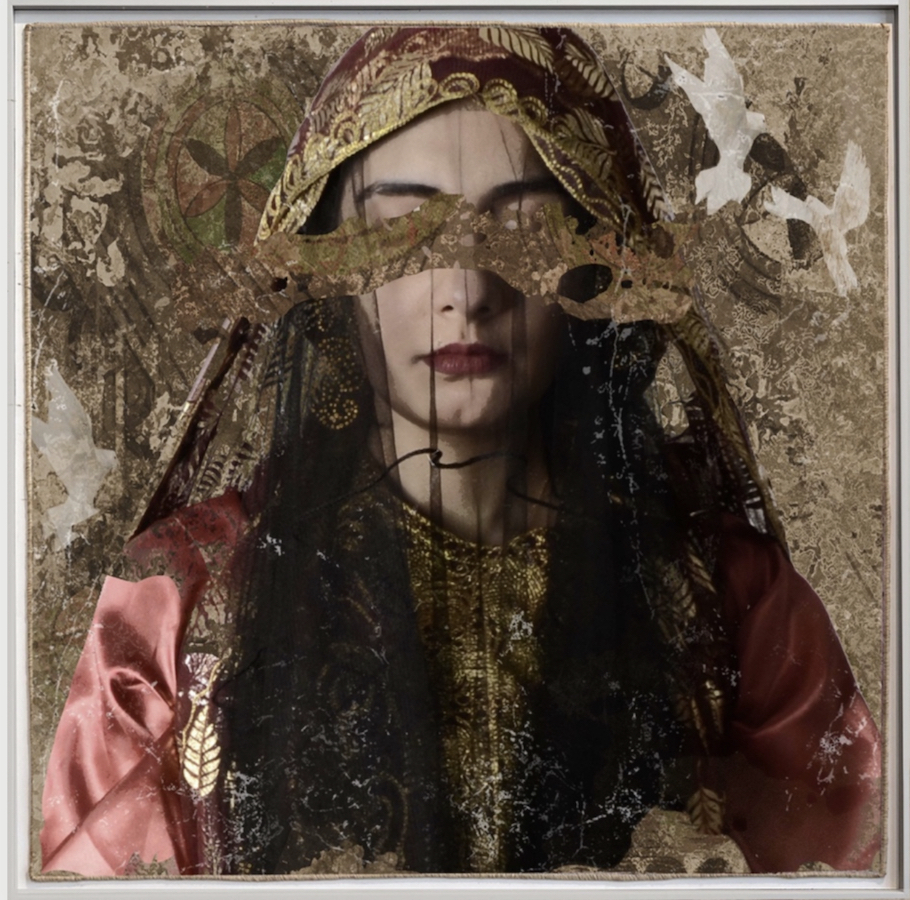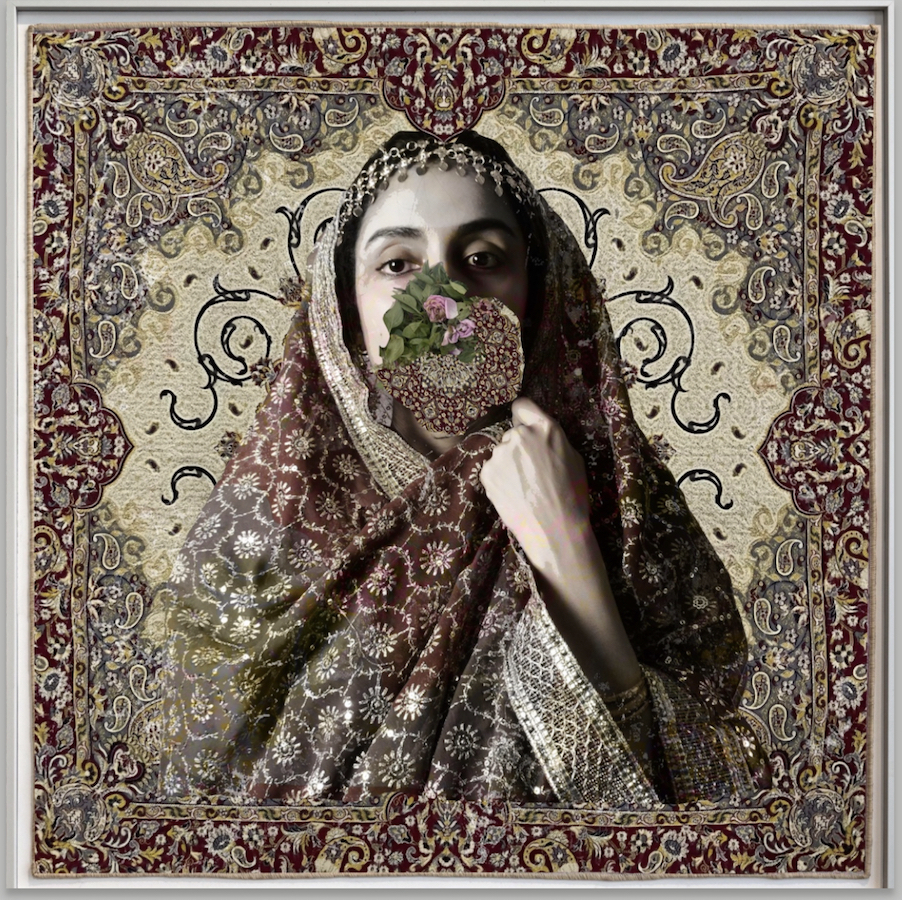DUBAI: Saudi artist Fatimah Al-Nemer’s latest exhibition is called “Dkhoun.” It is a documentary project focusing on inspirational women from the Arabian Peninsula, hosted recently at Mestaria Gallery in Dubai’s Alserkal Avenue.
The project began nine years ago when Al-Nemer, who was born in Qatif in Saudi Arabia’s Eastern Province, started researching and archiving biographies of women who made a huge impact on their societies.
“I embarked on a mission to explore the worlds of these women,” she tells Arab News. “Through each woman and story, I discovered myself, which enabled me to capture the stories that history has overlooked and shape narratives that immortalize these women, taking them into my world of expressive art.”

Gald. (Supplied)
Dkhoun means “the finest types of precious incense” in Arabic, she explains. “‘Dkhoun’ elevates in meaning in my artwork to symbolize the nobility and emotions we feel within, such as goodness, purity, and contentment,” she continues. “When we inhale a certain scent, we instinctively close our eyes to immerse ourselves in the emotions we feel. That’s why I chose this name: it signifies a nobility that transcends the senses, embodying a woman’s insight and her noble essence, resembling the most precious types of incense.”
The exhibition features eight textile art pieces, each manufactured from silk fabrics layered on canvas panels and topped with acrylics, leaving a symphony of colors and textures that reflect the depth and richness of Saudi culture.
“I transform and manufacture pieces, blending silk and various materials on canvas, then weaving them like historical figures on carpets,” Al-Nemer says. “I specialize in documenting the history of women from the Arabian Peninsula using a unique style and multiple techniques. I recycle our heritage in a contemporary artistic style. This method is actually taught in universities as my unique style as an Arab artist specializing in multimedia and processing.”
For “Dkhoun,”, Al-Nemer drew inspiration from Princess Fatimah, also known as the “Princess of the North.”
“She was the first princess in the Arabian Peninsula from the Shumar tribe. Her strength and wisdom are renowned, and she led some of the greatest men in her tribe,” Al-Nemer says.

Shaloh. (Supplied)
“I was also inspired by the character ‘Shalwa’ — a symbol of motherhood and tenderness. She lost her father and husband, and raised three young children by herself in a time of hunger and poverty,” the artist continues. “They grew up to become strong and resilient men, among the strongest in the tribe, and they saved the tribe from the ravages of war.”
Another work was inspired by the story of Ward Jallayah — known in the Qatif region for her adornment of brides, particularly the seven braids during the henna night, the pre-wedding celebration.

Ward. (Supplied)
“I also drew inspiration from the story of Salma, a rababa (traditional instrument) player in the Hail region, and the sad love story that she sang about,” she adds.
For Al-Nemer, “art is a state of liberation from reality,” she says.
“Every artist seeks a sanctuary where they can shed the burdens of life and, in this sense, art is the salvation that frees you from constraints,” she explains. “Freedom and passion were what inspired me to create miracles.”
Al-Nemer also says that art enabled her to overcome her social anxiety. “As a shy child, I was uneasy about associating in a society dominated by loud voices,” she says. “Art became my salvation and my voice on the blank canvas, allowing me to express my thoughts and my personality. I considered art a way of life and my voice a means to face the world without hesitation, boosting my self-confidence.”
It's a lesson she is keen to pass on to others. Her advice to parents is: “Don’t hesitate to encourage your child to express themselves through drawing their feelings — it can be a powerful means of self-expression.”
Like the subjects of her latest show, Al-Nemer says that contemporary Saudi women are “educated, strong, liberated, and leaders.”
“Saudi women have now risen to many leadership positions due to their determination and perseverance,” she says. “The abilities possessed by our women are unstoppable.”












